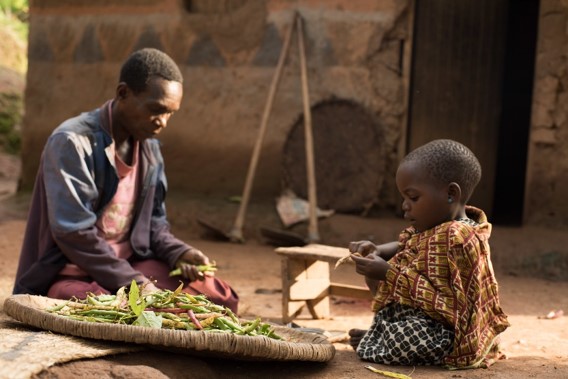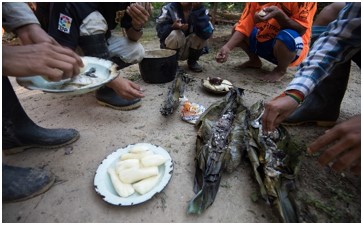International partnership to research global impact of COVID-19

Priestley Centre researchers are involved in a brand-new initiative to explore how the pandemic is affecting food systems in Indigenous communities.
‘The COVID Observatories’ will see researchers from across 16 institutions work with communities and decision makers to document the impacts COVID is having and how people are responding.
Indigenous peoples are believed to be particularly vulnerable to COVID, exacerbated by climate risks and socio-economic stresses.
The project, which is being led by Professor James Ford, Priestley Centre Chair in Climate Adaptation, will involve collaboration with 24 Indigenous groups in 14 countries.
A network of ‘COVID observers’ within these communities will document their experiences of the pandemic over the period of a year.
Insight gathered by the project will help understand the unique challenges and needs of Indigenous communities for COVID response and recovery. It will be critical for informing decision-making at local to global levels.
Professor Ford said: “The COVID Observatories will examine how COVID is being experienced and responded to by Indigenous peoples living in diverse regions globally.
“The project’s importance stems from working with some of most at-risk communities globally, where over a 12 month period we will document the stories of individuals and households as they confront and recover from COVID in-light of rapid climate change impacts."
Apu Richard Rubio, Vice President of the Interethnic Association for the Development of the Peruvian Rainforest said: “We are very excited to start working in the Global Observatories of COVID, we hope to work for the good of others, and to become teams of humans that transmit signs of life from each community and country"

Credit: Matt King
The project is being funded by UK Research and Innovation through the UK Government’s Global Challenges Research Fund (GCRF) and the Newton Fund, which support cutting-edge research to address the global issues faced by developing countries.
The COVID Observatories is one of 20 projects to be awarded grants for exploring the impact of COVID-19 on some of the world’s most vulnerable communities. Together, the projects will develop solutions to mitigate the short and long-term social, economic and health consequences of the pandemic.
These awards are the second tranche to be announced by UK Research and Innovation (UKRI) funded through the Global Challenges Research Fund (GCRF) and the Newton Fund.
After a first group of 20 projects were announced in September, it means a total of 40 partnerships are working across every part of the Global South. They are investigating everything from improving health systems in Africa to how the pandemic is affecting fishing communities, displaced people and people with disabilities.
The Agile COVID-19 GCRF and Newton Fund has invested £14.5 million into the projects. The projects have brought together more than 100 universities and hundreds of other partners operating in 39 countries in Africa, Asia, South America and Oceania.
They build on the multidisciplinary partnerships formed through the two global funds over the past four years. They have enabled rapid new partnerships between the international development research community, other academics, policy makers, governments, businesses and community groups across the UK and the rest of the world. The projects will be carried out over the next 18 months.
More information
The COVID Observatories: Monitoring the interaction of pandemics, climate risks, and food systems among the world’s most disadvantaged communities is a collaboration between the following institutions: University of Leeds, Uganda National Health Research Organisation; Universidad Peruana Cayetano Heredia, Peru; University of Warwick; University of Alberta and University of Northern British Columbia, Canada; University of Ghana; University of Kenya; Indian Institute for Human Settlements; Ashoka Trust for Research in Ecology and the Environment; University of Namibia; University of the Sunshine Coast, Australia; University of Cape Town, South Africa; McGill University, Canada/Sri Lanka.
Main image credit: Matt King
